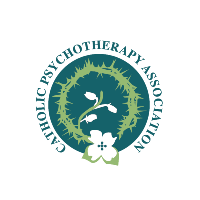
- 904.420.0536
The Catholicism and Psychoanalysis SIG is pleased to host the following salon: "Projective Drawings as a Means of Play and Expression of Internalized Object Relations and Unconscious God Images" with John Cadwallader, PsyD.
DW Winnicott’s seminal work “Playing and Reality” focused on the significance of the humanbeings’ use of objects as an extension of the subject, transitional objects, transitional phenomena,creativity, play, and search for the self. Winnicott utilized play through drawings within thepsychotherapy relationship, as a means to express internalized object relations, attachment, the unconscious, and creativity.
This salon introduces participants to the Winnicott’s concepts related to playing, expressivity,intrapychic experiences, and object relationships. Attention will be given to explore drawing as a bridge of connecting the clinician with the patient’s internalized object relations both as a therapeutic tool, and a means of exploring unconscious representations of God and the BlessedVirgin Mary.
The two subsequent cohort meetings will provide first a brief case presentation on use of drawings in a psychotherapy session. The second cohort will provide a brief vignette and examples of how drawings are used for narrative and communication of unconscious
introjections in spiritual relationships. Ample time will be provided for discussion.

Dr. John Cadwallader is a clinical psychologist, mental health counselor, and owner of Central Psychological Services LLC, a Catholic group practice, located in Indianapolis. He received his Masters and Doctorate in Clinical Psychology from the University of Indianapolis. He is the Director of Seminary Counseling at Bishop Simon Brute’ College Seminary. Dr. Cadwallader is a practicum supervisor for doctoral students from the University of Indianapolis. He also has worked part-time as an adjunct professor at St. Meinrad Seminary and the University of Indianapolis.
Dr. Cadwallader works with adults providing psychotherapy and assessment that integrates Catholic anthropology into the treatment. His theoretical orientation is Psychoanalytic, rooted in Object-Relations theory. He has a special interest in working with clergy, religious, and seminarians; characterological disorders; trauma; psychological assessment; consultation; and supervision.